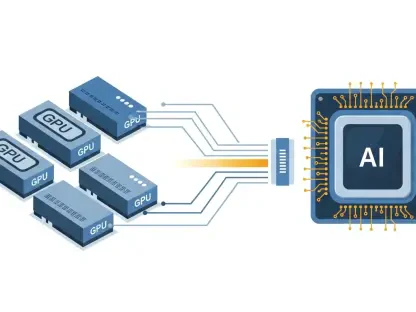Two Democratic senators are raising serious antitrust concerns about recent partnerships between tech giants Google and Microsoft and AI startups Anthropic and OpenAI, respectively. Elizabeth Warren and Ron Wyden are leading the inquiry to determine whether these collaborations could potentially function as “de facto mergers,” thereby evading regulatory scrutiny while solidifying dominant positions in the fast-growing AI market. The investigation comes at a critical time when AI technology is becoming increasingly integrated into various aspects of business and consumer life.
Investigating AI Market Dominance
Inhibiting Competition and Reducing Consumer Choices
This inquiry brings to light significant concerns regarding the impact these partnerships might have on market competition, consumer choice, and pricing structures within the AI ecosystem. The senators suggest that such collaborations could significantly curb competition and lead to reduced choices and inflated prices for both businesses and consumers who rely on AI tools. There is an underlying fear that these strategic alliances could consolidate the market power of Google and Microsoft, stifling innovation and further entrenching their dominance.
The lawmakers argue that, by forming these extensive partnerships, tech giants might create barriers that discourage the entry of new competitors into the AI market. As a result, this lack of competition could stifle technological advancement and lead to stagnation, which would negatively impact the overall development of cutting-edge AI solutions. Moreover, consumers and businesses might find themselves with fewer alternatives, ultimately driving up costs and limiting access to a diverse array of AI tools and services.
Financial and Operational Relationships Scrutinized
A central concern of the senators’ inquiry revolves around the financial and operational relationships between the companies involved. Google has taken a significant 14% ownership stake in Anthropic following a substantial $3 billion investment, while Microsoft has established a close and ongoing working relationship with OpenAI. This financial entanglement has raised red flags about the potential for these companies to sidestep the rigorous scrutiny typically applied to mergers and acquisitions.
The senators are particularly worried that through such financial and operational alignments, companies may consolidate talent, information, and resources in a manner that permits them to bypass antitrust regulations. This concern is echoed by the Federal Trade Commission (FTC) report earlier this year, which highlighted how these types of partnerships could fortify the market dominance of major technology firms, making it even more difficult for smaller companies to compete effectively in the AI domain. The critical question is whether these collaborative arrangements grant the tech giants undue influence over the AI market, undermining its competitive integrity.
Preferential Treatment and Resource Allocation
Monopolization of Computing Resources
A vital aspect of this investigation centers on the monopolization of computing resources essential for the development of AI technologies. Senators Warren and Wyden are questioning whether Anthropic and OpenAI are gaining preferential access to computing resources from Google and Microsoft, respectively. The inquiry demands specifics about the payment arrangements for these computing capacities, suggesting that such preferential treatment could lead to an uneven playing field, ultimately disadvantaging other AI developers.
If Anthropic and OpenAI are indeed receiving better terms or more extensive access to Google and Microsoft’s computational power, it could further entrench these tech giants’ dominance in the market. This preferential allocation of resources might limit opportunities for other AI startups, who may find themselves unable to compete on equal footing. Furthermore, enterprise customers could face increased costs due to the artificial constriction of available computing resources, impacting budgeting and operational efficiency.
Talent Consolidation and Collaboration Risks
The potential consolidation of talent and information sharing between these partner organizations is another area of concern. The inquiry specifically looks at whether individuals hold dual roles, such as serving on the boards or occupying key positions in both partner companies, and whether there has been significant employee movement between these organizations. Such practices could effectively create a scenario where fewer independent teams are driving the development of AI solutions, concentrating power and expertise within a limited number of market players.
Senators Warren and Wyden are apprehensive that this consolidation could lead to a market where innovation is driven by fewer, more dominant entities. This could facilitate the transfer of crucial technological information and intellectual property, further empowering these companies to fortify their positions of dominance. The inquiry is particularly concerned that such consolidation may hinder independent developers’ ability to offer competitive alternatives, resulting in fewer choices for consumers and higher barriers for new entrants into the AI market.
Strategic Concerns for AI Developers
High Switching Costs and Vendor Lock-In
High switching costs and vendor lock-in are pressing concerns for the senators investigating these partnerships. They argue that exclusivity contracts and steep egress fees might trap AI developers within specific cloud service environments, creating significant financial barriers to switching to new cloud service providers (CSPs) as their needs evolve. This is particularly troubling in an industry where flexibility and adaptability are key to innovation.
The development of specialized AI semiconductor chips by these tech giants exacerbates the issue. Google’s proprietary Tensor Processing Units (TPUs) and Microsoft’s Maia 100 AI chips represent significant technological investments that could tie AI developers to these CSPs. These dependencies not only limit competitive opportunities but also pose long-term risks for developers who may find themselves constrained by the technical architecture and financial terms imposed by these dominant players. As a result, there could be increased costs and limited options for enterprises seeking varied and competitive AI solutions.
Potential for Full Acquisitions
The possibility that Google and Microsoft might fully acquire their respective AI partners adds another layer of complexity to this inquiry. The senators explicitly inquired about any plans or discussions regarding potential acquisitions and whether Anthropic and OpenAI would consider such deals. This line of questioning follows an FTC report which suggested that CSP’s acquisition of their AI developers could further consolidate control within the critical AI market.
Full acquisitions would signify the ultimate consolidation of these partnerships, effectively removing any remaining independence between the companies. This would solidify the tech giants’ control over the AI market and potentially stifle competition further. Such moves could disrupt the delicate balance of innovation and market competition, reinforcing Google’s and Microsoft’s already significant influence on the direction of AI development, products, and pricing.
Broader Implications and Regulatory Concerns
Impact on Enterprise AI Strategies
The implications of this congressional inquiry extend well beyond the companies directly involved, holding significant ramifications for broader enterprise AI strategies. As enterprises increasingly integrate AI technologies into their operations, the regulatory outcomes of this scrutiny will play a pivotal role in shaping the future AI landscape. Should lawmakers determine that these partnerships breach antitrust laws, enterprises might face disruptions in their supply chains, necessitating a reevaluation of their AI provider relationships.
Conversely, heightened regulatory enforcement could introduce a more competitive environment, encouraging innovation and potentially leading to more cost-effective and diverse AI solutions. Enterprises must carefully consider the stability and compliance of their AI suppliers with emerging antitrust standards to mitigate potential risks. The outcome of this scrutiny is likely to influence strategic decisions, operational planning, and investment approaches within the AI sector.
International and Bipartisan Focus on AI Market Regulation
Two Democratic senators, Elizabeth Warren and Ron Wyden, are raising serious antitrust concerns about recent partnerships between tech giants Google and Microsoft and AI startups Anthropic and OpenAI, respectively. They are leading an inquiry to determine if these collaborations might act as “de facto mergers,” potentially bypassing regulatory scrutiny while reinforcing their dominant positions in the rapidly expanding AI market. AI technology is increasingly integrating into various business and consumer aspects, making this investigation particularly timely. As AI becomes more pervasive, the potential for monopolistic behavior grows, raising questions about market competition and fair practices. This scrutiny ensures these tech partnerships don’t stifle innovation or competition. With AI technology at the forefront of technological advancement, the inquiry aims to maintain a balanced competitive landscape and prevent market dominance by a few major players, ensuring consumer interests are safeguarded.









